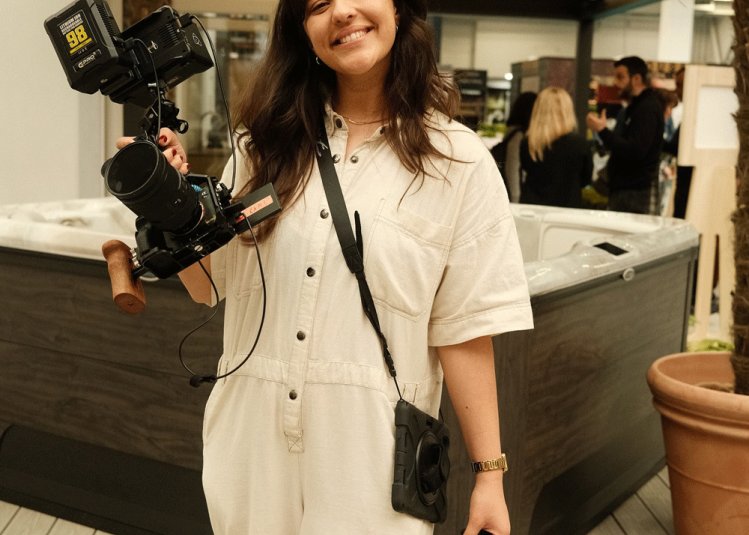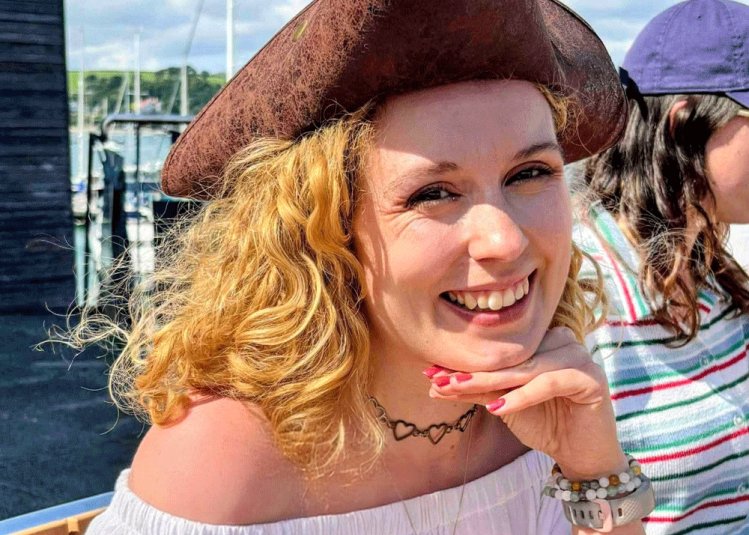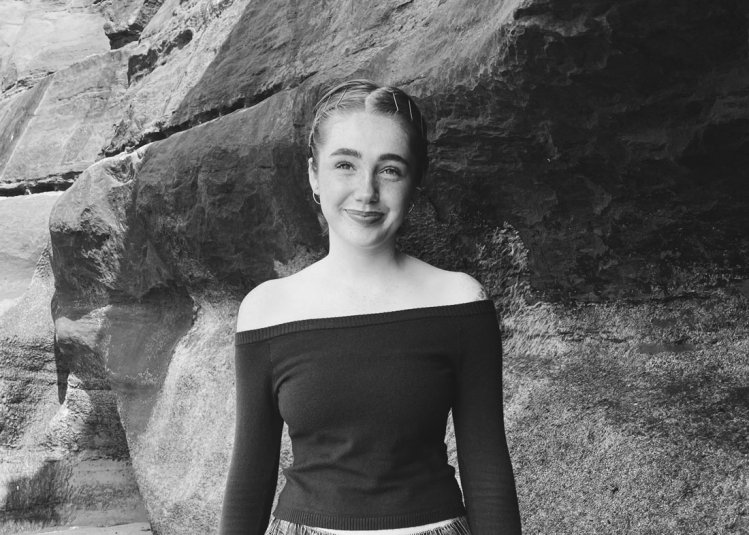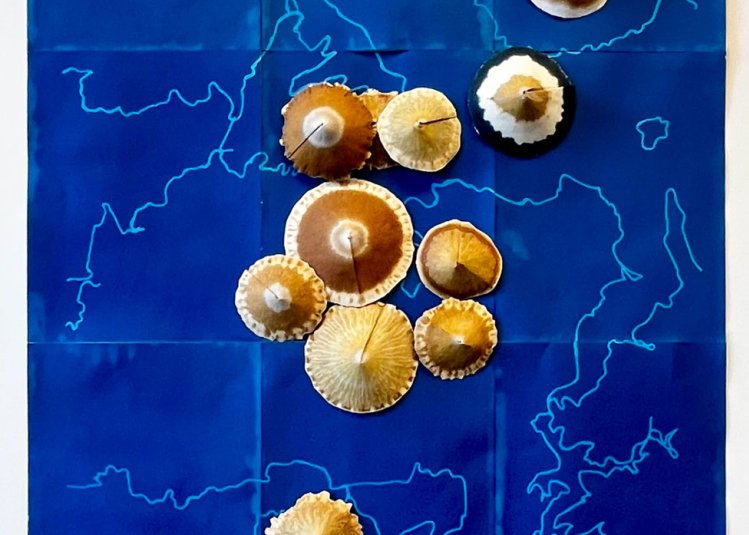Film alumnus explores men’s mental health, mining and Cornwall’s community in new documentary
25 September 2025
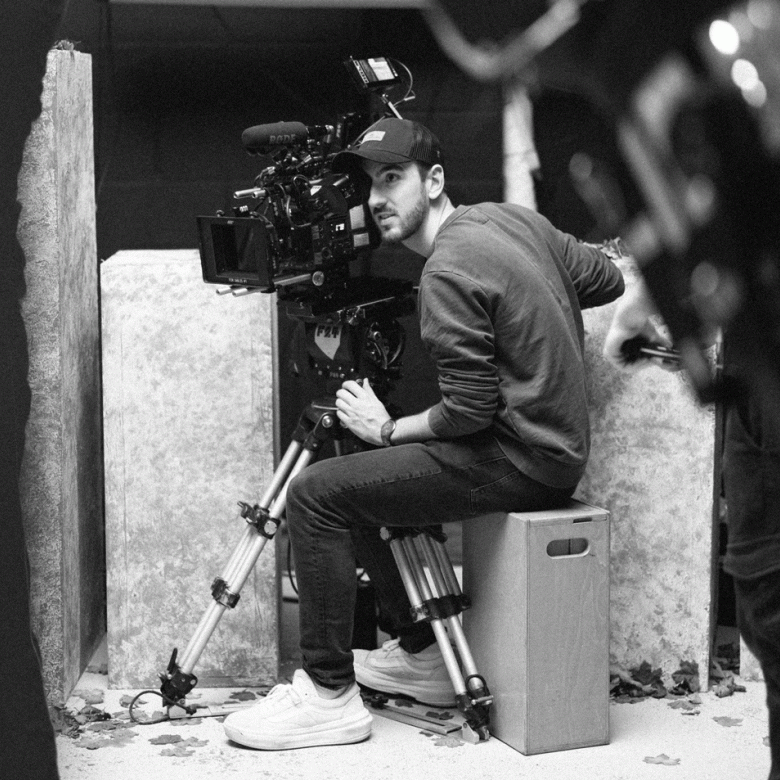
Dan Simpkins is an award-winning documentary filmmaker and Director of Photography, who since graduating from Falmouth in 2018 has travelled the world using the skills gained on his Film BA(Hons), with his work having been showcased at BAFTA and BIFA-qualifying festivals London Short Film Festival, Encounters, and Cannes all while working as a camera technician in London.
But it was the sense of community, camaraderie and creative inspiration he found in Cornwall that helped him to complete his latest project, The Lost Boys of Carbis Bay. Now, Dan is bringing the 30-minute documentary, a story that closely follows a group of mine explorers on their unexpected journey of self-discovery, to the Kendal Mountain Festival later this year.
Working in collaboration with fellow Falmouth alumni Angus Breton, a Television & Film Production BA alumnus who edited the documentary, and Falmouth’s Sound/Image Cinema Lab, Dan has created a film that explores the importance of community in our everyday lives while contemplating men’s mental health.
We caught up with Dan to learn more about the documentary that studies mine exploration through an insightful lens, covering the adventure of a journey beneath Cornish soil whilst meditating on the significance of unity and shared escape.
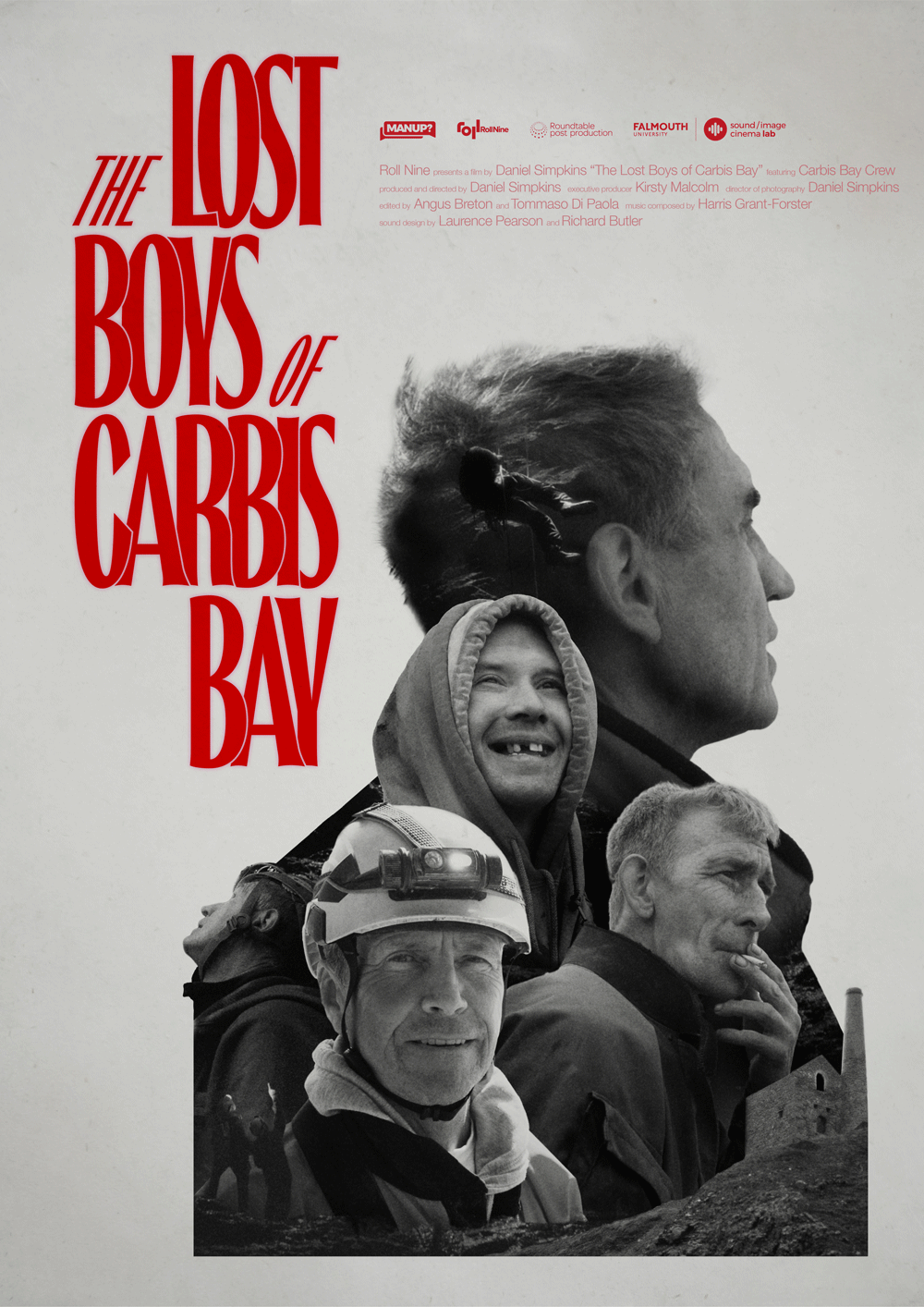
What can you tell us about the story behind The Lost Boys of Carbis Bay?
The Lost Boys of Carbis Bay follows a group of unlikely explorers, the Carbis Bay Crew, as they head into Cornwall’s forgotten mines. What starts as an adventure soon turns into an unexpected journey of self-discovery.
For this ragtag group of explorers, the pursuit of the unknown offers a cathartic release, allowing them to set aside their worries and reset for the challenges of everyday life. Beyond the adrenaline rush, their adventures have become a vital source of connection and understanding, highlighting the enduring importance of community in our lives.
What message do you hope to convey through the film?
At its core, this film is about more than mine exploration; it’s about the importance of community and the quiet battles of men’s mental health. For the Carbis Bay Crew, the act of descending into the depths of mine shafts, wading through chest-deep water, and squeezing through impossibly tight spaces isn’t just an adventure. It’s a form of escape, a way to leave behind the pressures of everyday life - even if just for a while.
As Pat Moret, the group's leader, reflects in the documentary: "The shared experience we all have together is something that men have done for hundreds and hundreds of years. They’ll go hunting together, they’ll go out on a boat together, they’ll go to war together. It’s a need to feel a part of something."
This film is a testament to that need; to the power of camaraderie, the solace found in shared struggle and the deep human instinct to belong.
Can you tell us more about the creative work you’ve been up to since graduating from Falmouth?
After graduating, I knew I needed to keep shooting while working my way up in the industry. I became a camera technician in London for five years, working with some of the UK’s largest independent rental companies and learning the expectations of professional crews.
Those companies were supportive of my ambitions to become a cinematographer. On weekends I was constantly shooting or planning projects, many of which had zero budget, which pushed me to be inventive and resourceful. That naturally led me towards documentary filmmaking, seeking out interesting people doing extraordinary things in remarkable places. I fell in love with the format and left my job in London to move back to Cornwall for three months to make The Lost Boys of Carbis Bay.
Since then, I’ve been freelancing as a Director of Photography and as a documentary filmmaker, with projects taking me to America, the Middle East and Africa.
How did your time studying film at Falmouth help prepare you for your career?
Studying Film at Falmouth was hugely important to my development. It gave me a solid foundation to build on, broadened my understanding of cinema and teaching me to think critically about film. The technicians played a key role in my practical growth and many of my peers remain close collaborators and friends to this day. I have very fond memories of my time there, and the experience continues to shape my work. I am very grateful to the School of Film & Television and its staff for their ongoing support as I progress in my career.
The support Dan has received since graduating has continued to this day, with Falmouth’s lecturers bringing their skills to the project. Speaking on his contribution to the documentary, Kingsley Marshall, Head of Film & Television said: “Dan reached out in 2024 with his project and initially sent me a couple of scenes, sharing that his production didn’t have the cash to finish the film. I invited him to screen his work in progress at the university and guest lecture for our students, which inspired Rich Butler to get involved with mixing the sound, bringing in some of the students to see first-hand the relationship between the director and sound editor.”
Rich Butler, Falmouth’s Post-Production and Visual Effects BA lecturer who has worked on projects such as Mark Jenkin’s Enys Men, said of his involvement: “Dan was always an enthusiastic and dedicated student, and when we chatted with him, we could see the effort that he and Angus had put into the footage to build this story. We were excited to get involved with the project, and over three days I worked with Dan and Angus to edit the audio and move onto the final mix for delivery, in our dubbing theatre here at Falmouth University. It’s been a pleasure to work on this great documentary, and I know it’ll fly and gain the praise it deserves.”
External links
See the film for yourself at The Poly, Falmouth on 24 January 2026
